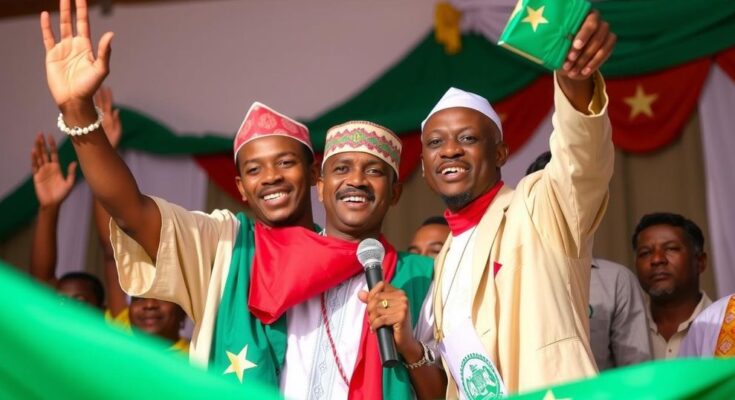Chad’s ruling Patriotic Salvation Movement won 124 of 188 parliamentary seats in a contested election, boycotted by major opposition parties. The election is part of a gradual transition to democracy, but concerns over its credibility remain amid ongoing security challenges.
In a significant political development, Chad’s ruling party, the Patriotic Salvation Movement (PSM), has secured a decisive victory in last month’s parliamentary elections, capturing 124 out of 188 available seats. Notably, this election marked the first parliamentary vote in over ten years and was held amid a boycott by prominent opposition parties. The reported voter turnout was 51.5%, according to provisional results released by Ahmed Bartchiret, the head of the electoral commission.
The elections, which also encompassed regional and municipal votes, were framed as a pivotal step in Chad’s transition towards democracy, following President Mahamat Idriss Deby’s military ascendancy in 2021 after the death of his father, former president Idriss Deby Itno. The government promises decentralization and enhanced local governance as part of this transition.
However, the election was marred by criticisms from more than ten opposition factions, including the influential Transformers party, which referred to the process as a “charade”. The main opposition leader, Succes Masra, had placed second in the previous presidential election and echoed concerns about the electoral integrity, suggesting that the recent parliamentary elections may echo the disputes surrounding the presidential vote.
The political landscape in Chad remains complicated, given the ongoing security challenges posed by militant activities, specifically from Boko Haram, as well as a notable deterioration of France-Chad relations. These developments highlight the fragile state of governance and democracy in Chad during this transitional period.
The provisional election results reveal the ruling Patriotic Salvation Movement’s dominating presence in Chad’s political sphere, which has been partly attributed to the absence of formidable opposition. Historically, Chad has faced significant challenges involving governance, democracy, and security, exacerbated by the military takeover following Idriss Deby Itno’s death. The push for decentralization is a response to citizens’ demands for more local governance, yet the election’s integrity raises questions.
In conclusion, the latest parliamentary elections in Chad have significantly fortified President Mahamat Idriss Deby’s grip on power, as evidenced by the ruling party’s overwhelming majority in a contest that was boycotted by key opposition parties. While the government promotes decentralization and a shift towards democracy, the critique of the electoral process by the opposition and the country’s emerging security challenges suggest a complex path ahead.
Original Source: www.euronews.com




